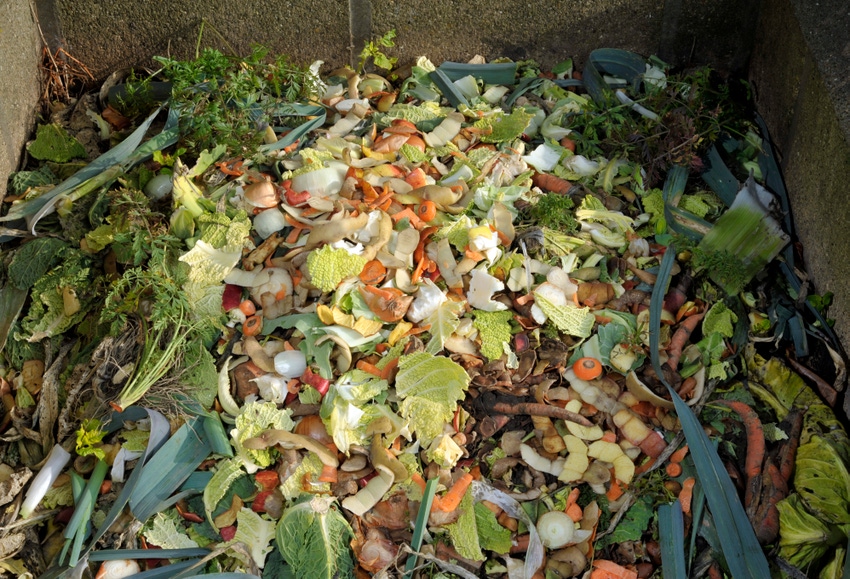U.S. Food Waste Pact engages businesses to reduce food waste
New initiative offers collaboration within and across sectors to achieve sustainability goals.
December 11, 2023

Building on the success of the Pacific Coast Food Waste Commitment (PCFWC), nonprofit partners ReFED and World Wildlife Fund (WWF) have formed the U.S. Food Waste Pact – a national voluntary agreement enabling pre-competitive collaboration and data-driven action to reach national and international food waste reduction targets, including United Nations Sustainable Development Goal 12.3. The U.S. Food Waste Pact is designed to go beyond commitment setting to drive meaningful progress on food waste reduction, as well as serve as a connective fabric to support other national and regional food waste efforts across the country.
In the U.S., 38% of all food goes unsold or uneaten – a $444 billion opportunity for the nation, including $250 billion for food businesses alone. Food waste is contributing 6% to our national greenhouse gas emissions and consuming more than 20% of our nation's freshwater supply, all while one in eight Americans face food insecurity. The U.S. Food Waste Pact will deliver on the urgent need for a national strategy and partnership to accelerate food waste reduction.
The Pacific Coast Food Waste Commitment, which launched in 2019, has been a model for this pre-competitive collaborative approach to driving action in the U.S. From the outset, leaders of the PCFWC intended to build and prove a model that could scale. Five years later, formation of the U.S. Food Waste Pact is the fulfillment of that vision and currently includes participation by multiple PCFWC business signatories and other national players, including Ahold Delhaize USA, ALDI, Aramark, Bob’s Red Mill, Compass Group USA, Del Monte Fresh Produce Company, Lamb Weston, Inc., Raley’s, Sodexo USA, Walmart, Inc., and Whole Foods Market.
The U.S. Food Waste Pact is designed around the global framework of “Target, Measure, Act,” and food businesses joining the U.S. Food Waste Pact (Signatories) will agree to work together alongside their industry peers toward a 50% reduction in food waste, measure and report food waste data to the U.S. Food Waste Pact annually, and participate in working groups and pilot projects to test, implement, and scale cost-effective and high-impact solutions.
“The U.S. Food Waste Pact is all about measuring and seeing action to reduce food loss and waste,” said Pete Pearson, global initiative lead for food circularity at WWF. “Through our work with the Pacific Coast Food Waste Commitment, we’ve seen how businesses respond when we help them identify the problems within their operations and also offer solutions and insights to fix them. This new initiative serves as a national platform for the private sector to show measured progress against their waste reduction goals.”
Leveraging best-in-class data methodologies, tools, and resources, the U.S. Food Waste Pact will provide Signatories with detailed custom waste analytics, industry benchmarking, and solution roadmaps, as well as human and financial resources to support pilot projects among Signatory participants. The U.S. Food Waste Pact will anonymize and aggregate the Signatories’ reported waste data before publicly sharing the results in an annual report, providing unique and valuable detailed insights into waste trends year upon year to benefit the entire industry.
“This level of industry collaboration to reduce food waste is unprecedented and exactly what is needed to successfully address such a systems-level problem.” said Dana Gunders, executive director of ReFED. “The data component of the Pact – from within their own operations and from across their sector – is critical to enabling our business partners to identify where to focus their resources, while also benchmarking their efforts against the rest of the industry. Those types of insights aren’t available to businesses right now.”
The U.S. Food Waste Pact provides a unique opportunity for food businesses to further their sustainability efforts by working collaboratively to drive food waste reduction. Working with ReFED and WWF – along with WRAP serving as an advisor – Signatories to the U.S. Food Waste Pact will receive a range of benefits, including:
Return on Investment – Food waste reduction programs around the world have shown proven significant return on investment for all types of food businesses;
Data insights – Aggregated anonymous reporting from all signatories enables businesses to measure their progress, identify priority areas of action, and benchmark against competitors; and
Industry collaboration – Pre-competitive working groups open to all signatories offer opportunities for businesses to learn from each other’s successes; discuss solutions to challenges; and engage with government leaders through special policy roundtable discussions.
Beyond the U.S. Food Waste Pact’s commitment to accelerating action, it also intends to provide the missing connection between other national and regional programs for businesses to reduce food loss and waste, such as the Food Waste Reduction Alliance and U.S. Food Loss and Waste 2030 Champions by the USDA and EPA, as well as global efforts like World Resources Institute’s 10x20x30 initiative. The U.S. Food Waste Pact will complement and support these existing efforts by providing direct support for businesses who have committed to take action. In addition to the PCFWC, the U.S. Food Waste Pact has also been inspired by similar global initiatives managed by WRAP, including the Courtauld Commitment in the U.K. and Pacto Por La Comida in Mexico, which have demonstrated the benefits of businesses working together to achieve sustainability goals.
“As a partner of the Pacific Coast Food Waste Commitment, WRAP together with ReFED and WWF share an ambition to scale-up action addressing food loss and waste in the US, and contribute significantly to the UN’s Sustainable Development Goal 12.3. WRAP is delighted to continue this strong association as an advisor for the U.S. Food Waste Pact and contribute to the success of this initiative.” said David Rogers, international director of WRAP. “Over the last twenty years, we have worked with partners from Mexico to Australia via South Africa and Indonesia to establish nation-specific programs tackling food loss and waste, from farm to fork. The U.S. Food Waste Pact is a crucial addition to this international network, enabling national delivery in the US to complement that of other nations and delivery globally on a key environmental issue facing every nation on Earth.”
You May Also Like



